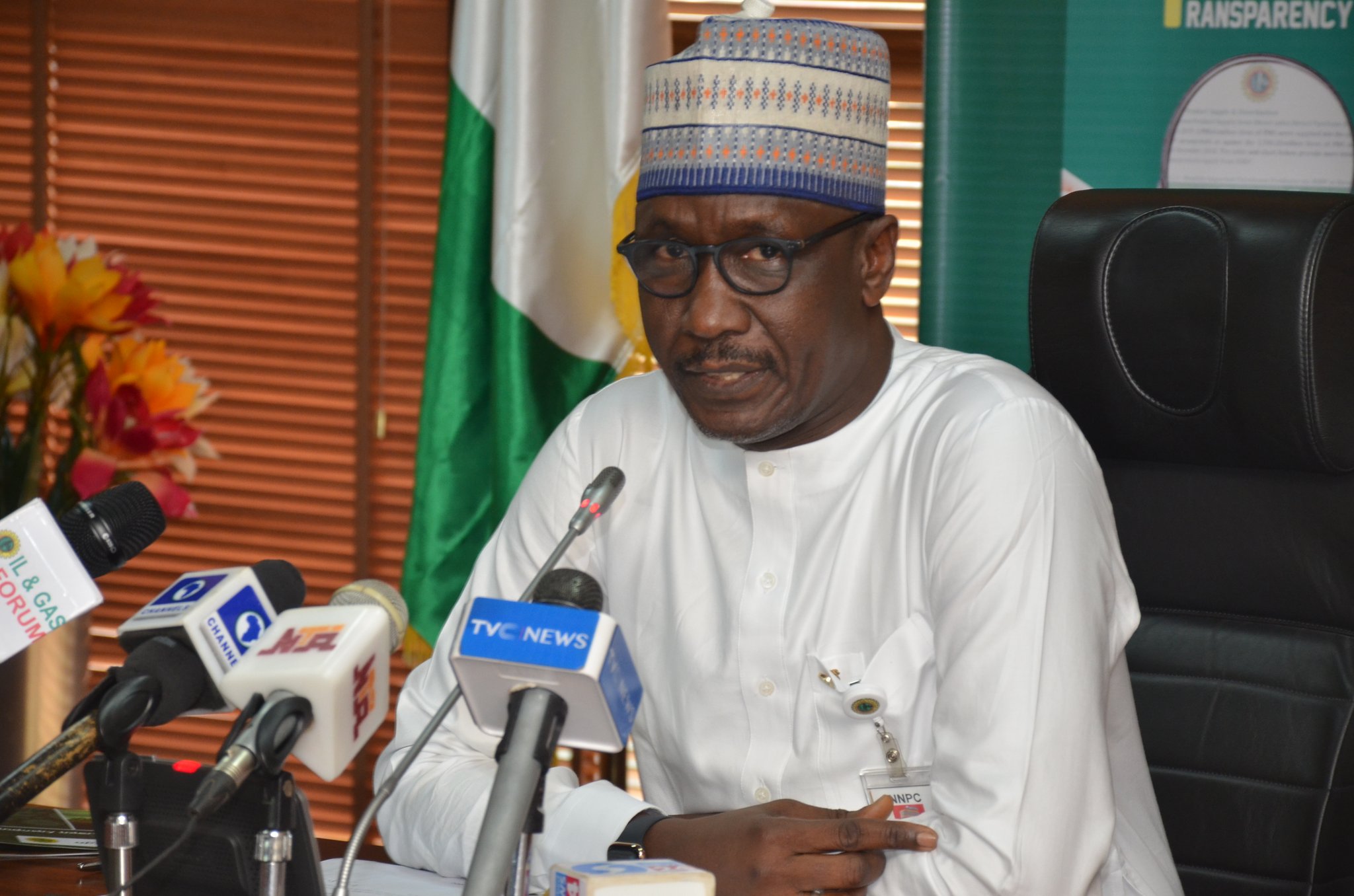By George Samuel
After weeks of unprecedented global lockdown occasioned by the coronavirus pandemic that has ravaged businesses, forcing closures and massive supply glut in the oil market, respite appears to be on the horizon. Group Managing Director of Nigerian National Petroleum Corporation (NNPC), Mr Mele Kyari, dropped the hint at the weekend in Abuja during a chat with journalists.
Kyari said the glut in the international crude oil market in the last few weeks was gradually easing off, causing prices to pick up slowly, as traders began to find a home for the commodity in their countries.
He stated, “At this point, we have seen a gradual easing of the situation. Those numbers of the uncommitted cargoes have gone down drastically and that’s why we see a gradual rise in prices in the last three to four days. It means that those uncleared transactions are now easing off.”
The NNPC GMD, however, explained that contrary to reports in some quarters that Nigeria’s crude oil vessels were floating on the high seas because buyers were not available, there was actually no physical vessel offshore waiting for customers.
There were insinuations recently that an estimated 84 million barrels of Nigerian crude oil were stranded at sea as the country was short of storage due to low global demand and falling prices. Some of the reports said cargo ships filled with Nigerian crude had “nowhere to go” while “a tanker was turned back from the US Gulf Coast, returning to the Canary Islands, where other Nigerian-hired ships are idle”.
But Kyari, who spoke with journalists at the NNPC headquarters in Abuja, explained that the product was usually sold two months ahead, stressing that all crude oil transactions in the international market are done on paper ahead of time.
He said, “When you hear stranded cargo, it doesn’t mean crude oil that’s floating somewhere. Crude oil is always sold two months ahead and it’s on paper. Once you have that allocation or you have purchased the paper, it is now the business of the trader where to take it. They either take it to a refinery or to storage.
“So, anytime you hear there are stranded cargoes it means they have not decided whether to take it to storage or they have not found the refinery at that point in time. So, it’s not any cargo floating at anytime that everybody can see.
“And when you hear stranded cargoes now, we are actually talking about June. We are now in May. This crude oil has not even gone out of the ground. So, there are many decisions customers can make. They can decide now to ask for a shutdown so that the crude does not even come to the surface.”
Responding to a question on the alleged shutdown of some ExxonMobil facilities in the country, the NNPC boss explained that while he could not specifically say the international oil company had done so, it could be for two reasons.
He stated, “As for ExxonMobil shutting down, I do not have the exact situation, but shutting down can be for two reasons: one, we have agreed to cut down production with the OPEC+ agreement and we are going ahead to reduce production from some of the wells.
“You can also shutdown for technical reasons and I don’t know which one is the case, but we have asked all our partners to take production cuts which means you have to shut down some of these wells.
“It may be for that purpose, but I don’t know the specific one in question, but either way, it is either for technical reasons or because of the OPEC+ agreement.”
On the cost of production per barrel of oil in the country, which remains one of the highest in the world, Kyari said the Minister of State for Petroleum, Mr Timipre Sylva, had given clear instructions to that effect, which the corporation was already carrying out.
Kyari said, “For the cost of production, the instructions were very clear and we are reducing it through many initiatives and one of them is to make sure we don’t go into businesses that we shouldn’t. We also make sure we shorten our contracting circle.
“We plan better now in the industry and we have set cost to remuneration in every intervention that we do and the net result is the manifestation of all these in our cost of production that is clearly going down. Once this is done, production rises, revenue rises and cost per barrel definitely comes down and we are confident because it’s working and those targets will be met.”
The GMD also stressed that the work on the refineries in the country was being delayed because of the COVID-19 pandemic, which has restricted the mobilisation of technical manpower internationally since February.
“It requires massive movement of men and equipment and none of them can work without the travel restriction being lifted,” he said, adding, “But we are making the necessary ground arrangement, so that once we take off, we apply maximum speed. It’s not jeopardised. We will go ahead just like the others.”

